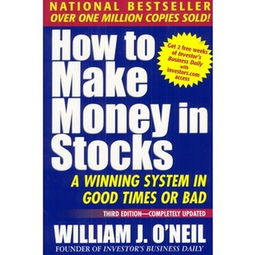How to Make 20 on Your Money: A Comprehensive Guide
Are you looking to maximize your earnings and make the most out of your finances? If so, you’ve come to the right place. Making 20 on your money, or doubling your investment, can seem daunting, but with the right strategies and knowledge, it’s entirely achievable. This guide will explore various methods and techniques to help you achieve this goal.
Understanding the Basics

Before diving into the strategies, it’s crucial to understand the basics of making money. Here are some key concepts to keep in mind:
- Investment: Investing involves allocating money to an asset or venture with the expectation of generating an income or profit.
- Risk: All investments come with some level of risk, and it’s essential to understand the potential risks before investing.
- Return: The return on investment (ROI) is the profit or loss generated from an investment, typically expressed as a percentage.
Now that we have a basic understanding of the concepts, let’s explore some strategies to help you make 20 on your money.
1. Diversify Your Investments

Diversification is a key strategy to reduce risk and increase your chances of making a profit. By spreading your investments across various asset classes, industries, and geographical locations, you can minimize the impact of any single investment’s poor performance.
Here are some asset classes to consider diversifying into:
- Stocks: Investing in stocks can provide high returns, but it’s essential to research and select companies with strong fundamentals.
- Bonds: Bonds are generally considered safer than stocks, offering fixed interest payments over a set period.
- Real Estate: Real estate can be a stable investment, providing rental income and potential capital gains.
- Commodities: Commodities like gold, silver, and oil can be a good hedge against inflation and market volatility.
- Cryptocurrencies: While risky, cryptocurrencies can offer high returns. However, it’s crucial to do thorough research and understand the associated risks.
2. Educate Yourself

Knowledge is power when it comes to investing. Educating yourself on various investment strategies, market trends, and financial products can significantly improve your chances of success.
Here are some resources to help you educate yourself:
- Books: Read books on investing, personal finance, and financial markets to gain a deeper understanding.
- Online Courses: Enroll in online courses offered by reputable platforms like Coursera, Udemy, and Khan Academy.
- Financial News: Stay updated with financial news and market trends through reputable sources like The Wall Street Journal, Bloomberg, and CNBC.
3. Develop a Strategy
A well-defined investment strategy is essential for achieving your financial goals. Here are some key components to consider when developing your strategy:
- Investment Goals: Determine your financial goals, such as saving for retirement, buying a home, or generating passive income.
- Time Horizon: Consider your time horizon, as different investments may be suitable for short-term or long-term goals.
- Risk Tolerance: Assess your risk tolerance and invest accordingly. If you’re risk-averse, consider safer investments like bonds or index funds.
- Asset Allocation: Allocate your investments across various asset classes to balance risk and return.
4. Automate Your Investments
Automating your investments can help you stay disciplined and avoid making impulsive decisions. Consider setting up automatic contributions to your investment accounts and using robo-advisors to manage your portfolio.
Here are some benefits of automating your investments:
- Consistency: Regular contributions can help you take advantage of dollar-cost averaging, reducing the impact of market volatility.
- Time-Saving: Automating your investments frees up time for other activities, allowing you to focus on your career or personal life.
- Discipline: Automating your investments can help you stay on track with your financial goals and



